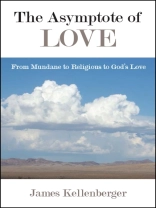In
The Asymptote of Love, James Kellenberger develops a theory of religious love that resists essentialist definitions of the term and brings into conversation historical debates on love in Western philosophy and Christian theology. He argues that if love can be likened to a mathematical asymptote, which is a straight line that infinitely approaches a curve but never quite reaches it, then the asymptote of love reaches toward the infinite endpoint of love at its uttermost, namely, God’s love. Drawing upon a broad range of thinkers who have put forth classic debates on love—such as St. Augustine of Hippo, Anders Nygren, and St. Thomas Aquinas, as well as some lesser known figures in the debate, such as Leo Tolstoy and Albert Schweitzer—Kellenberger explains the profound connection between human agape and God’s infinite love in its capacity to offer both directive guidance and to exist beyond human conception.
Содержание
Acknowledgments
Introduction
1. The Varieties of Love
2. Love’s Relationships
3. Love of Others
4. Knowledge of God and Love of God
5. The Command to Love
6. Love of God
7. God’s Love
8. The Circle of Love
9. The Depth of Love
10. The Asymptote of Love
Bibliography
Index
Об авторе
James Kellenberger is Emeritus Professor of Philosophy at California State University, Northridge and the author of
God’s Goodness and God’s Evil.












